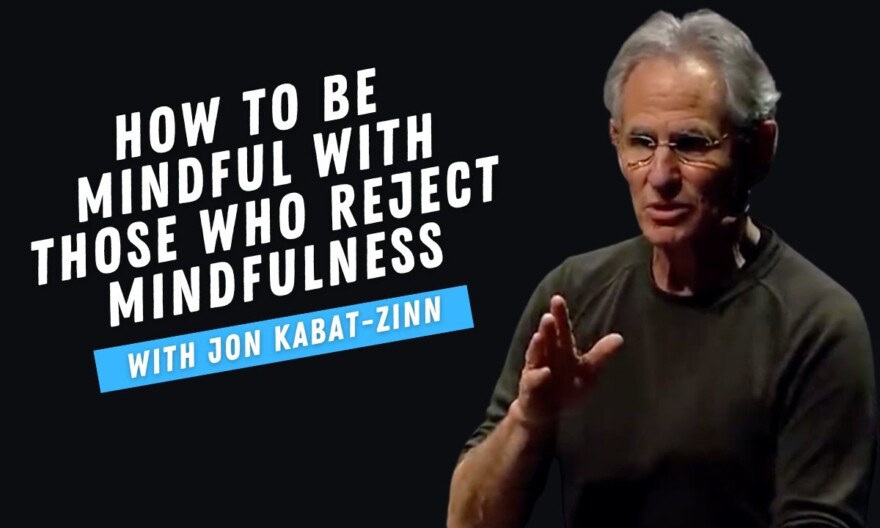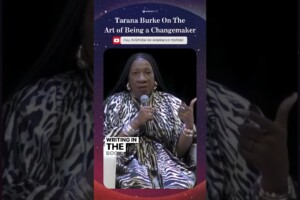
In this Q&A, we have the privilege of speaking with Jon Kabat-Zinn, the renowned mindfulness expert and founder of the Mindfulness-Based Stress Reduction (MBSR) program. Together, we explore the question of how to remain mindful even in the face of rejection, a common experience that can challenge our inner peace and equanimity. With his deep insight and wisdom, Jon offers practical tips and strategies for cultivating mindfulness in relationships where our mindfulness practice is met with resistance or skepticism. Whether you are a mindfulness practitioner or simply seeking to deepen your understanding of human relationships, this conversation with Jon is sure to offer invaluable guidance and inspiration.
How to Be Mindful With Those Who Reject Mindfulness | Q&A with Jon Kabat-Zinn
Are you someone who practices mindfulness but struggles to connect with people who don’t? Have you found yourself feeling frustrated or judgmental towards individuals who seem resistant to mindfulness practices? In this Q&A, we’ll be exploring how to cultivate a mindful approach to relationships, even with those who reject mindfulness.
Introduction
Mindfulness has become an increasingly popular topic in recent years, with many individuals discovering the benefits of incorporating mindfulness practices into their daily lives. However, despite its growing popularity, there are still many people who reject mindfulness, either due to skepticism or simply lack of interest. In this Q&A, we’ll be discussing how to approach these types of relationships with a mindful and non-judgmental attitude. Our special guest Jon Kabat-Zinn, a renowned expert on mindfulness and one of the speakers in the upcoming Wisdom 2.0 conference, will be sharing his insights on this topic.
What is Mindfulness?
Before diving into the Q&A, it’s helpful to have a clear understanding of what mindfulness is. According to Kabat-Zinn, mindfulness is “paying attention on purpose, in the present moment, and non-judgmentally.” It involves being fully present and engaged with whatever you’re doing, without getting swept away by distracting thoughts or emotions.
Q&A With Jon Kabat-Zinn
Q: How can we be mindful when speaking to people who reject mindfulness?
Kabat-Zinn: First and foremost, it’s important to approach these conversations with an open mind and heart. Instead of immediately assuming that the other person is closed-minded or ignorant, try to listen to their perspective and understand where they’re coming from. Remember, mindfulness is about non-judgmental awareness, so try to suspend any preconceived notions you may have about the person or the situation.
Q: Is it worth trying to convince someone to try mindfulness if they’re resistant to it?
Kabat-Zinn: It depends on the situation. If the person is simply resistant due to lack of knowledge or understanding, then it may be worth sharing some information with them about the benefits of mindfulness. However, if the person is adamantly opposed to mindfulness or seems closed off to the idea, it’s important to respect their autonomy and not push them to try something they’re not comfortable with.
Q: How can we practice mindfulness in our relationships with people who reject mindfulness?
Kabat-Zinn: One of the key principles of mindfulness is compassion. Even if someone doesn’t practice mindfulness themselves, you can still approach your relationship with them from a place of compassion and understanding. Try to be fully present and engaged when speaking with them, and listen to their perspective without becoming defensive or judgmental. Remember, you don’t have to agree with someone to be compassionate towards them.
Q: How can we avoid becoming frustrated or angry with people who reject mindfulness?
Kabat-Zinn: It’s natural to feel frustrated when someone doesn’t share our values or practices, but it’s important to recognize that these feelings are ultimately unhelpful. In fact, they can actually detract from your own mindfulness practice by causing you to become more reactive and less present. Instead of getting caught up in negative emotions, try to take a step back and approach the situation from a place of curiosity and inquiry.
Q: Can mindfulness help us overcome differences in opinion or ideology?
Kabat-Zinn: Absolutely. Mindfulness can help us cultivate greater empathy, compassion, and understanding towards others, even if we don’t necessarily agree with their viewpoints. By practicing non-judgmental awareness, we can become more adept at recognizing the common humanity that underlies all human beings, regardless of our differences.
Conclusion
In conclusion, cultivating mindfulness in our relationships with people who reject mindfulness requires a non-judgmental, compassionate, and open-minded approach. While it may be tempting to become frustrated or defensive when faced with resistance, mindfulness can help us approach these situations from a place of curiosity and inquiry instead. By practicing mindfulness in our relationships, we can cultivate greater empathy, understanding, and connection with others, regardless of their opinions or beliefs.
FAQs
- What is Wisdom 2.0?
- Who is Jon Kabat-Zinn?
- Does the Wisdom 2.0 website offer additional resources on mindfulness?
- What is the Online Practice Community, and how much does it cost?
- Is there a cost to sign up for the Weekly Wisdom News Inner Journey Newsletter?





